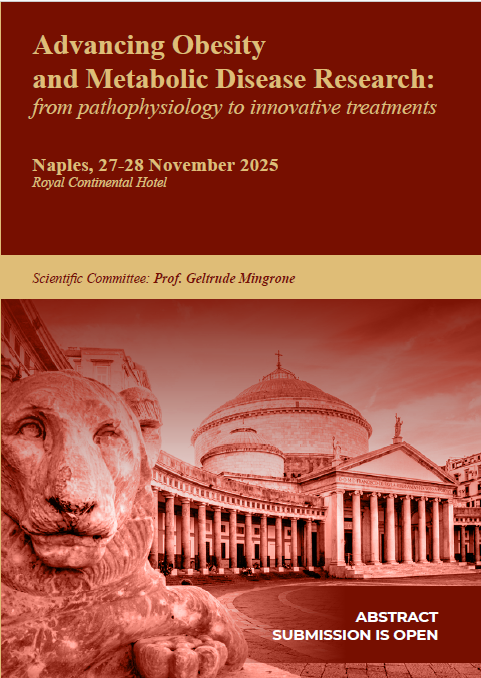Obesity and its related metabolic disorders remain some of the most pressing public health challenges of our time, requiring a multidisciplinary approach to understand their pathophysiology, clinical implications, and treatment strategies. This meeting brings together experts from various fields to provide a comprehensive overview of obesity, metabolic dysfunction-associated steatotic liver disease (MASLD), and their interconnections with metabolic and cardiovascular health. The meeting begins with an introduction, setting the stage for discussions that blend scientific insights with broader reflections on competition and perseverance, as illustrated by the historical rivalry between Bernini and Borromini. This thematic introduction serves as a metaphor for scientific progress, emphasizing the importance of collaboration and innovation in advancing medical research. A key focus of the meeting is the dysfunction of adipose tissue and its impact on obesity and liver health. The presentation on this topic provides a foundation for understanding the mechanisms driving metabolic diseases, setting the stage for subsequent discussions on MASLD/MASH pathophysiology. Given the increasing prevalence of metabolic-associated liver disease, emerging insights into its underlying mechanisms and new diagnostic and treatment strategies are crucial. The second day begins with discussions on the distinction between clinical and preclinical obesity, an evolving concept that has significant implications for both treatment and prevention. Clarifying these definitions is essential for refining diagnostic criteria, identifying individuals at risk, and implementing targeted interventions. The prevalence of these obesity subtypes will be explored, followed by a round table discussion where experts will debate the most effective approaches for diagnosing and managing clinical obesity. Pharmacological treatment remains a cornerstone of obesity management, and recent advancements in weight loss medications warrant a dedicated session to provide a comprehensive overview of their efficacy, safety, and place in therapy. Additionally, obesity in type 1 diabetes—a less frequently discussed but clinically significant condition— will be examined to shed light on its prevalence and treatment implications. Bariatric surgery continues to play a pivotal role in obesity management, even as pharmacological approaches advance. The evolving relationship between surgery and medication-based treatments will be explored, with a focus on optimizing patient outcomes. Furthermore, MASLD/MASH will be examined from both hepatic and cardiometabolic perspectives, emphasizing the need for tailored treatment strategies based on disease subtypes. The meeting will also highlight novel insights into the role of leptin deficiency and leptin receptor defects in insulin resistance and diabetes, further expanding our understanding of obesity- related metabolic dysfunction. Finally, the conference will address the cardiovascular benefits of GLP- 1 receptor agonists, reinforcing their role beyond glucose control in the secondary prevention of cardiovascular events. By fostering discussions across disciplines—including endocrinology, hepatology, pharmacology, and bariatric surgery—this meeting aims to drive innovation in obesity research, refine diagnostic and therapeutic strategies, and ultimately improve patient care. The concluding remarks will summarize key takeaways and outline future directions for research and clinical practice.
Al Ozairi Ebaa
Angrisani Luigi
Basso Nicola
Bornstein Stefan R.
Buscemi Silvio
Capristo Esmeralda
Casella Giovanni
Castagneto Gissey Lidia
Di Lorenzo Nicola
Fernandez Josè Manuel
Gastaldelli Amalia
Kokkinos Alexander
Infelise Patrizia
Laville Martine
Lenzi Andrea
Lucatello Anna
Manco Melania
Mingrone Geltrude
Musella Mario
Newsome Philip
Pattou Francois
Pezzica Samantha
Raffaelli Marco
Romeo Stefano
Rubino Francesco
Russo Maria Francesca
Russo Sara
Sabatini Silvia
Sesti Giorgio
Vidal Puig Antonio
12
La invitiamo a consultare l’informativa privacy di AGE.NA.S disponibile al link:
https://ecm.agenas.it/privacy-policy

